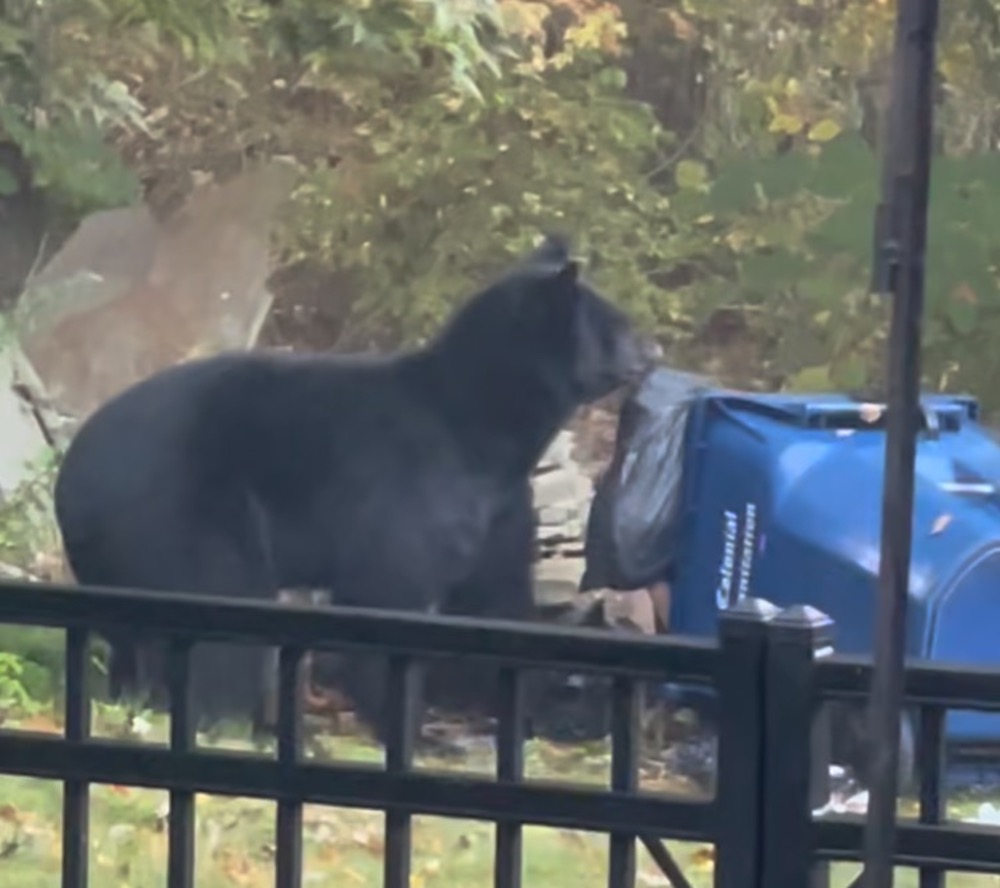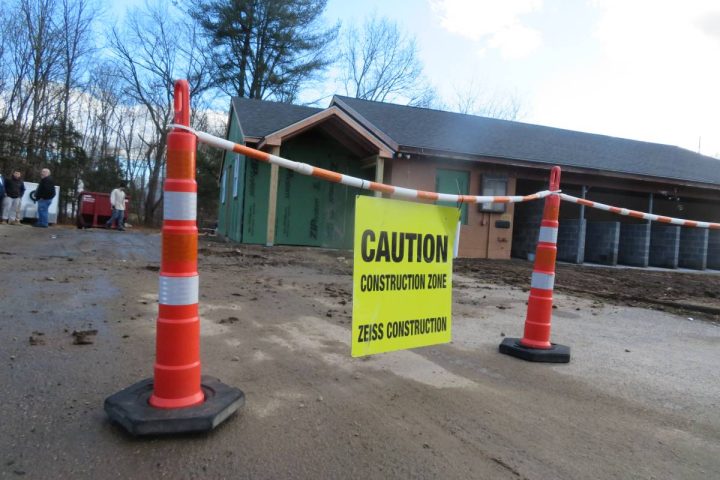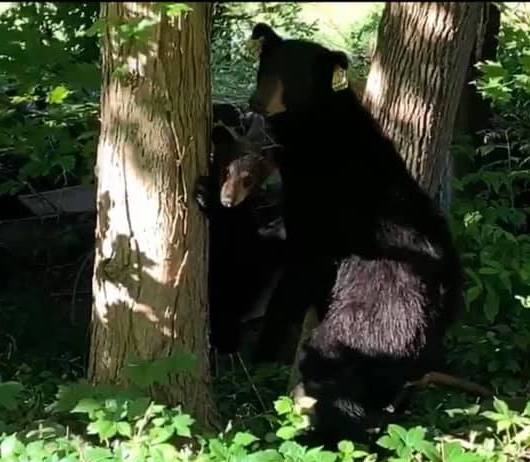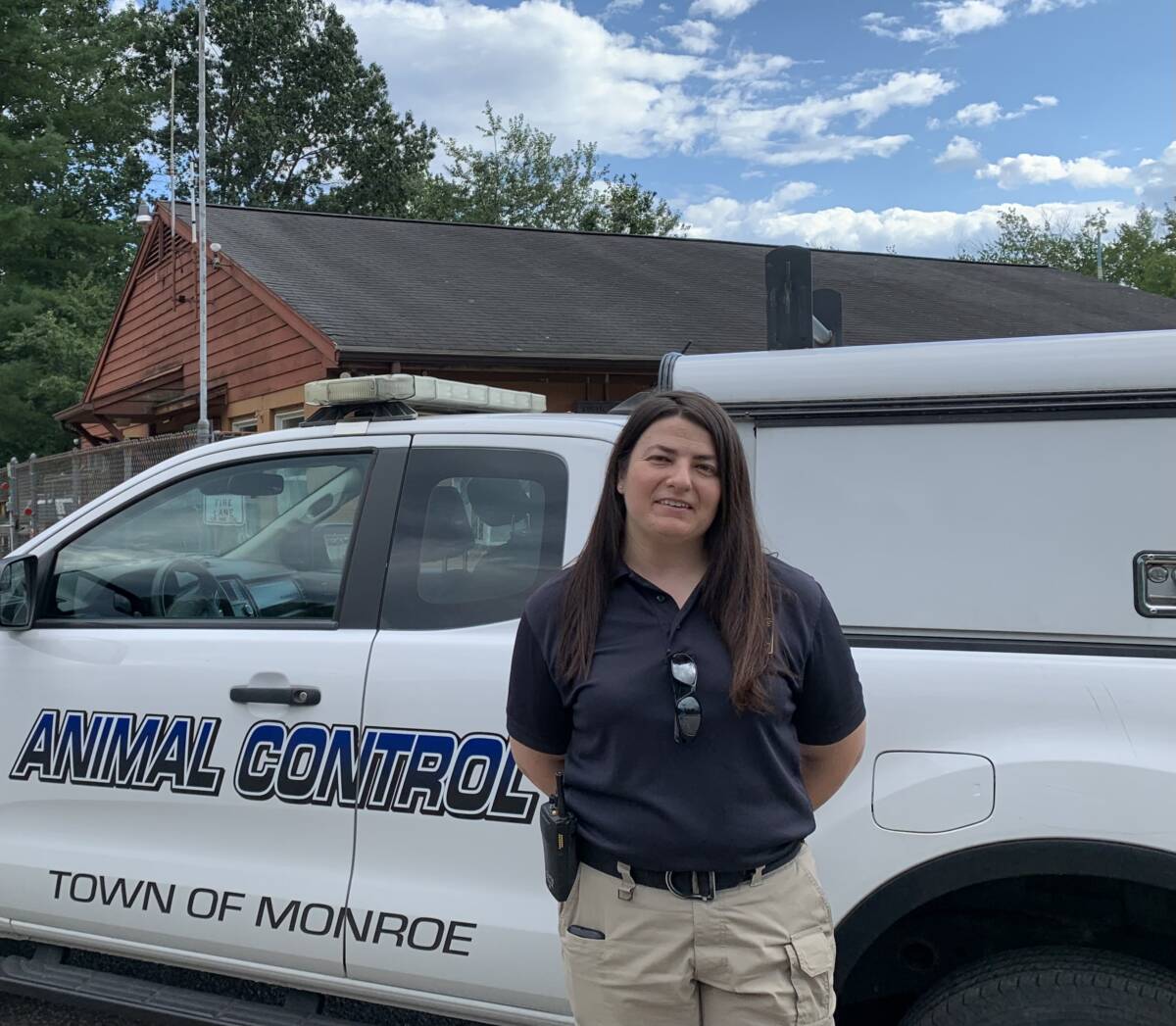MONROE, CT — Black bears are wandering all over town, while eating everything they can get their paws on. Police are receiving reports of tipped over trash cans, toppled bird feeders and break-ins into chicken coops.
Animal Control Officer Ed Risko said the animals are at the stage of hyperphagia, when bears must consume 20,000 calories a day before hibernation.
“They’re constantly on the move, walking and eating,” he said Thursday.
Risko said bears forage for at least 20 hours a day during this stage, until hibernation which is in late December, depending on the weather.
Monroe Animal Control received calls about four bears between last Thursday and this Tuesday.
Risko showed a photo of a bear rummaging through a trash bin on Fan Hill Road.
Animal Control recommended Critter Clips to secure the trash after a bear — Bobby 217 — got into it a couple of weeks ago, but Risko said that didn’t stop another bear this week.
He said bears can figure out levers and pull door handles, adding secured garbage containers still must be easier to open for trash haulers on pickup days.
Risko said bungee cords do not work with raccoons or bears.
“Bears are like raccoons,” he said. “They’re smart and looking for an easy meal.”
Risko said he did find bear proof trash bins online, but the prices range from $250 to $350.
‘Almost like tracking squirrels’
He said bears follow the same route, so if one was in your yard recently, it should be back after it turns around, especially if there was food the last time.
The bear that knocked over the bin on Fan Hill Road continued over the hill, before finding a chicken coop on Garter Road, Risko said.
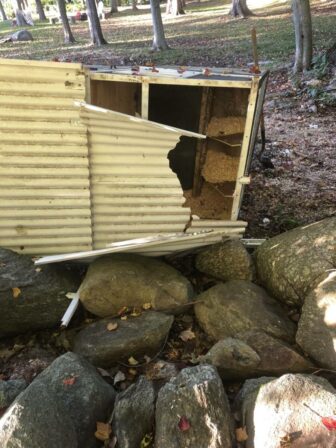
Another bear broke into chicken coops on two different properties on Far Horizon Road. Risko said a total of eight chickens were reported missing after the three incidents.
The only effective way to secure a chicken coop from bears is to install electric fencing, according to Risko.
The latter bear was seen on Nelson Brook Road at Barn Hill Road, continuing west to Hillside Lane, Whitney Farms Golf Course, then to Wheeler Road where it damaged a bird feeder, Risko said.
Risko said residents there tried to scare the bear away by making noise with pots and pans, but the animal had gotten conditioned to hearing noises and just laid there, eating the seeds.
Last weekend, Risko said a homeowner at the same property used his chainsaw in his front yard and, when he walked to the back of his property, he saw a black bear at the bird feeder.
When yelling and making noise does not make a bear leave your property, Risko said, “you’ve got to make noise and follow it up by throwing something at the animal to reinforce it.”
He suggests stones or tin cans filled with coins, so it rattles when it hits the bear.
After getting into the bird feeder, Risko said the bear went to Old Tannery Road in a straight line continuing to Far Horizon Road, where it got into two chicken coops, then to Harvester Road.
Other bear sightings were at the south end of Wheeler Road, Pastors Walk and Knollwood Street.
“They’re all over the place,” Risko said, while looking at his map. “It’s almost like tracking squirrels now.”
He said Monroe Animal Control used to track fox dens 20 years ago, but now there are so many foxes in town it became pointless to locate all of the den sites.
Within three-to-five years, Risko predicts black bears will be so numerous that it will become more common for the animals to establish dens in sheds and under porches.
Bear tips
Here is some information from the Monroe Police Department on how to avoid attracting bears:
- Remove bird feeders from late March through November. If a bear visits a bird feeder in winter, remove the feeder.
- Add a few capfuls of ammonia to trash bags and garbage cans to mask food odors. Keep trash bags in a container with a tight lid and store in a garage or shed. Wait until the morning of collection before bringing out trash.
- Do not leave pet food outside overnight and store livestock food in airtight containers.
- Do not put meats or sweet-smelling fruit rinds in compost piles. Lime can be sprinkled on the compost pile to reduce the smell and discourage bears.
- Thoroughly clean grills after use.
- Never intentionally feed bears. Bears that associate food with people may become aggressive and dangerous. This may lead to personal injury, property damage, and the need to destroy problem animals.
- Encourage your neighbors to take similar precautions. If you see a bear on your property you can either leave the bear alone and wait for it to leave or make loud noises from a safe distance in an attempt to scare the bear away.
- Bears know how to open unlocked car doors, so keep your doors locked.
More tips can be found by clicking here.

